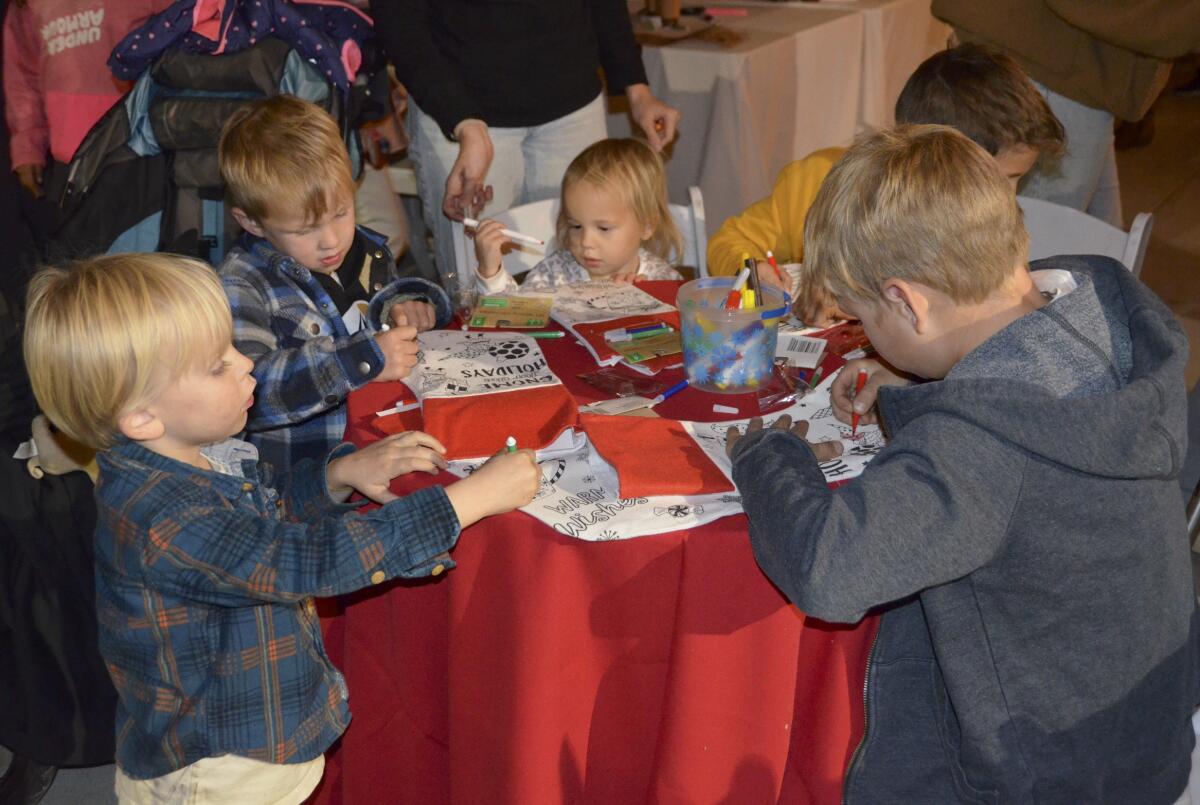A Word, Please: A punctuation primer as a grammar gift for the holidays

Sending out holiday greetings this year? Christmas cards, emails, posts on the family Facebook page and party invitations are all wonderful opportunities to embarrass yourself with punctuation and grammar mistakes. So here, continuing my annual tradition, is the 2022 edition of the most common holiday greeting grammar flubs and how to avoid them.
Wrong: Happy holidays from the Miller’s! Right: the Millers. If your last name ends with any letter other than S, Z, X, Ch or Sh, make it plural by just adding S. No apostrophe. Two people named Miller are the Millers. Three people named Smith are the Smiths.
Wrong: Happy holidays from the Ricci’s. Right: the Riccis. A name that ends in a vowel may look weird with an S at the end, but that’s no excuse to add an apostrophe. If your last name is D’Angelo, two of your family members are D’Angelos.
Wrong: Happy holidays from the Jones’, the Ramirez’s or the French’s. Right: Joneses, Ramirezes, Frenches. Seeing a theme here? No matter the name, you should never use an apostrophe to make it plural. These names work just like common nouns ending in S, Z, X, Ch and Sh, which add ES to form the plural — bosses, blintzes, axes, marches, marshes. So two Ramirezes, no apostrophe.
Wrong: We’re visiting the Miller’s house, the Ricci’s house, the Williams’ house, the Jones’s house, the Ramirez’s house or the French’s house. Right: The Millers’, Riccis’, Williamses’, Joneses’, Ramirezes’, Frenches’. Unlike plurals, possessives actually do take apostrophes. But when you’re talking about something that’s owned by more than one person, like a house, first make it plural — one Williams, two Williamses — then add the possessive apostrophe at the end: the Williamses’ house.
Like it or not, the verb “cringe” is being adopted as an adjective, a cringe-worthy development to some ears.
Wrong(ish): Hey Katie, (as a greeting in a card or email). Right: Hey, Katie. Don’t confuse a greeting like “hey” with an adjective like “dear.” When “dear” begins a correspondence, you don’t need a comma after it: Dear Katie. And when “Dear Katie” kicks off the first line of a correspondence, you can follow it with a comma or a colon: “Dear Katie, (line break) It was so nice to hear from you.” But “hey,” “hi,” “hello” and similar greetings are not adjectives. They don’t modify the noun that follows the way “dear” does. Instead, “hey” should be separated from the name with a comma. So just like “Katie, what are you doing?” and “It’s nice to see you, Katie,” there’s a comma to set off the name in “Hey, Katie.” After the name, you could put a comma, but it looks funny because you already have one after “hey.” So opt for a colon or a period. “Hey, Katie: How have you been?” “Hey, Katie. Hope you’re well.” So why do I say that “Hey Katie,” with the comma at the end is “wrongish” instead of just wrong? Because it’s standard. Every editor I correspond with uses it. If editors do it, you can, too.
Not offensive: Xmas. Contrary to the common belief that X erases Christ from Christmas, the X here is the Greek letter chi — the first letter in Christ — which was used as a reference to Jesus. So don’t worry about offending anyone if you feel like writing Xmas.
Wrong: Have a Merry Christmas and a Happy New Year. Right: Have a merry Christmas and a happy New Year. Merry and Happy aren’t capitalized unless they’re the first word in the sentence.
Wrong: Wishing you all the best in the New Year. Right: the new year. The holidays New Year, New Year’s, New Year’s Eve and New Year’s Day are capitalized. References to the year itself are not: the new year.
Wrong: Seasons greetings. Right: Season’s greetings. You’re sending greetings of just one season: this one. So season’s is singular possessive.
June Casagrande is the author of “The Joy of Syntax: A Simple Guide to All the Grammar You Know You Should Know.” She can be reached at JuneTCN@aol.com.
All the latest on Orange County from Orange County.
Get our free TimesOC newsletter.
You may occasionally receive promotional content from the Daily Pilot.




